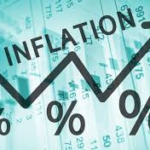
The recent outburst by the Governor of the Bank of Ghana that foreign remittances have dwindled despite a strong local cedi, and that certain austerity measures were therefore necessary to reverse the trend, was quite ludicrous.
When your currency appears strong, even if backed by all the gold reserves in the world, but your economy remains a retail-based one with no homegrown secondary industries creating jobs, what outcome do you expect? A strong cedi cannot compensate for an economy that imports almost everything it consumes, raises limited domestic revenue from taxation, and continues to suffer from a negative balance of trade.
Without a robust industrial base and value-added production, currency strength becomes cosmetic and reflects monetary manipulation rather than genuine economic health.
The obsession with a strong cedi and the illusion of macroeconomic stability are distractions from the deeper structural problems that cripple Ghana’s economy. True economic stability cannot be achieved through currency gymnastics or interest rate acrobatics. It must come from production, not presentation.
A nation’s real strength is not measured by the exchange rate of its currency but by its ability to manufacture, process, and export goods while employing its citizens in sustainable industries.
When local production is weak, even the most stable currency is a deceptive symbol of fragility. Ghana’s fiscal managers have become overly fixated on satisfying foreign creditors and defending an artificial exchange rate rather than building internal economic confidence.
Instead of investing in industries that add value to raw materials, government policies continue to prioritize imports and short-term borrowing. This is why every global shock sends the cedi tumbling and inflation soaring. The country cannot tax itself into prosperity. A strong economy comes from creating, innovating, and exporting, not taxing citizens to death.
Have you ever looked at the visa application index of all fifty-four African countries? Just a glance shows which nations are truly investing in their people.
Countries like Namibia, Botswana, Morocco, and Mauritius enjoy visa-free entry to regions such as the Schengen zone, the United Kingdom, and large parts of Asia and Latin America. Yet these same countries do not impose visa requirements on nationals from richer countries who visit them.
Now look at West Africa, particularly Ghana. It is often the countries whose passports attract the fewest privileges abroad that impose the heaviest visa fees on others. We are told these arrangements are bilateral, but they are not.
They reflect a mentality of inferiority wrapped in arrogance, what I call monkeys playing by sizes. The result is an economic policy that punishes both citizens and foreigners, shrinking investment and stifling tourism, while the government continues to cry about dwindling remittances.
As if visa restrictions were not enough, our leaders impose a chain of taxes on Ghanaians abroad who try to support their families. They tax remittances, they tax the trotro plane ticket you buy to come home, they tax the calling card you use to check on your mother, and they tax the used vehicle you import just to move around.
Because the government lacks a meaningful strategy for generating real revenue through productivity, it turns ordinary citizens into prey. Anyone doing slightly better than the government becomes an enemy of state policy.
Imagine Ghana offering visa-free entry to all African countries and African Americans. The flow of cultural and financial investment that would follow would far outweigh the few dollars collected at visa desks.
My own classmate would have visited Ghana in 2019, and I am sure the amount she would have spent here would have been ten times what government gains from visa fees. But because that money would circulate in the local economy instead of going directly into government coffers, it is not a priority.
Even traveling home has become a punishment. Take a look at a simple air ticket from America to Ghana and you will see ECOWAS levies, COVID levies, and other unthinkable charges that make the average fare nearly twice that of the UK. It is not because London is closer or busier.
It is because Ghanaian policymakers are either wicked, operating with a crude Keynesian misunderstanding of economics, or they simply do not know what they are doing.
The same taxation madness applies to communication. I once called South Africa with a five-dollar calling card and spoke for almost two hours. The same five-dollar card to Ghana lasts barely ten minutes. Why? Because of taxes.
It is the recipient country that taxes incoming calls so heavily that even talking to your family becomes a privilege. Instead of tackling such distortions, our Ministry of Communications would rather engage in comical shows about DStv fees or indulge in moral theatrics over social issues, leaving the real economic injustices untouched.
The uncanny spectacle welcomes us everywere- from our ports to our policies. A 2016 Toyota Corolla with a modest 1800cc engine costs about forty-five thousand cedis to clear at the port, nearly equivalent to its market value in the United States.
How does it make sense that the duty on a used car almost equals its worth? When you break down the import charges, you will even cry. We are still paying COVID-19 levies long after the pandemic, and nobody in power seems embarrassed by this absurdity.
This slash-and-burn style of governance, where citizens are bled for every cedi, reflects a government that has lost all sense of economic reason.
Leadership continues to prioritize control over creativity and taxation over transformation. Instead of fostering industrialization, we have mastered the art of survival through levies. The people are taxed when they send money home, when they speak, when they travel, and when they die.
And yet, with all these taxes, public infrastructure is crumbling, hospitals lack basic supplies, and industries are shutting down.
If Ghana truly wants to build a resilient economy, it must rethink everything from its visa policies to its tax structures. Opening up the country to African and diasporan investors, reducing arbitrary fees, and encouraging the free movement of people and goods would stimulate growth more effectively than any IMF loan. A strong economy is not built by restricting entry or punishing success. It is built by empowering citizens and rewarding productivity.
And finally, instead of singing choruses about how much gold Gold4Good or any other government initiative was able to accumulate in eight months of existence from small-scale miners, let us chant choruses about the number of homegrown gold refineries, mineral cutting centers, and gold assaying facilities Ghana has built.
Let us measure progress not by the amount of raw gold exported, but by the value we add before it leaves our soil. And let us bear in mind that even the tiny state of Massachusetts, with no gold at all, has built lasting and enduring prosperity for its citizens by investing in human capital and penetrating deeper than any geology or gold mine can ever reach.
- President Commissions 36.5 Million Dollars Hospital In The Tain District
- You Will Not Go Free For Killing An Hard Working MP – Akufo-Addo To MP’s Killer
- I Will Lead You To Victory – Ato Forson Assures NDC Supporters
Visit Our Social Media for More




